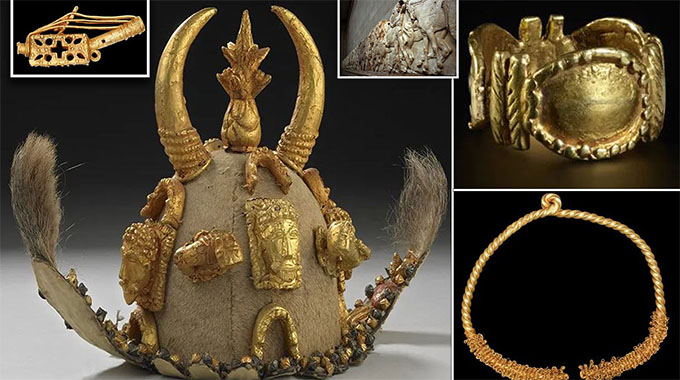Of band managers, professionalism


Tokcy Vibes (left), his manager Elvis Bokosha (right) and a fan in the United Kingdom
Tawanda Marwizi Arts Correspondent
Band managers play important roles in managing affairs of artistes and their groups.
They have brands to protect and images to spruce up every day.
While some artistes limit their managers to booking shows and collecting gate-takings, professional musicians engage managers for many other roles that keep brands attractive.
Music, just like any other business entity in the world, needs a professional approach and managers are key in keeping the musicians’ brands going.
It seems in Zimbabwe most band managers are now content with the role of booking shows and selling tickets because that tradition is common in the local industry.
Consequently, due to poor management and lack of proper advice, most artistes fail to manage fame and in most cases their careers suffer the results of mismanagement.
Some artistes never realise their potential or probable success because they do not value professionalism.
Apart from show-booking, managers should be responsible for show programmes and be able to monitor the behaviour of musicians and their bands on and off the stage.
They are responsible for keeping the brand alive, looking for adventures that can take artistes to another level.
Managers should have the ability to utilise the social media in researching on trending issues and how their artistes can capitalise on that to please fun loving people in and outside the country.
A manager should have the power to convince a musician on issues that are good for the development of the band and the brand.
Unfortunately, most managers work to please their artistes yet the musicians should actually take orders from the managers.
Alick Macheso’s former manager William Tsandukwa publicly clashed with the musician over the issue of dancer Peter Kagomera
Macheso had fired the notorious dancer several times over lack of discipline but would re-hire him without consulting the manager until Tsandukwa threatened to quit his job if the dancer was to join the outfit again.
Kagomera would make headlines in newspapers with his wayward behaviour, a move that saw several organisations distanced themselves from the outfit.
Though he was talented, Kagomera’s behavior would tarnish the image of the band and the musician.
In Zimbabwe a number of managers still believe that managing funds and booking gigs around the country are their only duties.
In some cases managers cannot even make proper contracts with promoters because of lack of professionalism and this has jeopardised many bands.
Professionalism should prevail and there are certain issues that artistes should consider when recruiting their managers.
His level of education and experience in the field is very important as it enhances good communication skills as well as his ability to market the brand the corporate world.
Artistes are exposed to different people in the industry and they should be able to identify managers that are innovative and responsible.
Still on Macheso’s case, the musician went through a period when promoters and the corporate world shunned him because of what they termed “Tsandukwa’s rough approach”.
Reports reaching this publication are that the two current managers Lucky and Tich Makahamadze are making efforts to mend relations that have been tarnished by Tsandukwa

Winky D
Winky D’s manager Jonathan Banda is one of those managers that have managed to keep the brand going despite facing serious criticism at some points.
It is on record that the Banda has managed to stick to his principles that have kept Winky D’s brand marketable.
Banda believes professionalism is the answer to his role.
“When managing an artiste, one needs to understand the dynamics of the industry.
“I know most artistes like to appoint managers whom they can toss around, but now it needs the individuals that posses the quality needed in the industry.
“If you fail to have that then you are just in a fell good relationship or friendship with the artiste and that does not yield good results,” he said.
Banda said it is important for managers and artists to have mutual respect that enhances proper decision making.
Another manager Elvis Bokosha who has managed top dancehall artistes Guspy Warrior and Tocky Vibes says it is important for managers to be transparent when dealing with finances.
“I believe every manager is just good but what is just needs is transparency when handling the finances of the band.
“That is one area that has costs the relationships of artistes and their managers,” he said.
Bokosha said the artists should not also underrate the ability of their managers.
“Sometimes artists do not value the ability of their managers to understand the dynamics of the music industry. As managers, I am sure we have all the time to make some researches on areas that can improve the artist. Umwe ukada kutomuudza anotokudzingira izvozvo,” he said.
Musicians and managers’ relationships usually turn sour when they accuse each other of misuse of funds.
Macheso and Tsandukwa reportedly exchanged words in Kadoma in front of the band members for funds embezzlement.
Former Suluman Chimbetu manager Trevor Jakachira was hailed for his efforts to make the musician appeal to the cooperate world. But the issue of mismanagement of finances separated them.
The young entertainer became the darling of several companies that appointed him ambassador.
It later emerged that Jakachira was taking advantage of the musician’s peak to solicit for bribes from promoters and he was fired.
The same happened to Filda Muchabaiwa who had a cordial relationship with Jah Prayzah and they worked together well until she reportedly misused funds.
They later resolved their matter amicably and parted ways without much controversy.
It is important for musicians to protect their brand by engaging the services of managers who have the ability, passion and good managing skills.
Oliver Mtukudzi in the late 90s hired manager Debbie Metcalfe who then assisted him with contracts to revamp his business strategies and firmly established the Tuku Music brand that has become the darling of many companies, promoters and fun-loving people across the globe.
Metcalfe took the Tuku brand to another level and made sure the musician’s international appeal grows beyond many of his counterparts on the local scene.
His current manager seems to be working hard to fill in the gap that Metcalfe has left.

Jah Prayzah and his manager Keen Mushapaidze
Keen Mushapaidze the current Jah Prayzah manager says band management is a difficult task that should not be taken for granted.
“There are several issues that are involved when managing a band and sometimes it is unfair to blame managers for failure when they are not given a chance to exercise their roles independently,” he said.
Mushapaidze said if managers understand the need to handle issues in a professional, it protects the image of the band.
“We have issues that we might fail to understand as managers.
“Punctuality at meetings, the dresscode and even the way you present yourself as the manager tells a lot about the company you work for,” he said.
Some managers do not have email addresses as they only rely on calls. That is not proper in this day and era.
However, Hapaguti Mapimhidze who manages dancer Bev believes phone calls are enough to communicate with promoters and those who are willing to work with the band. Music critic professor Freddy Zindi said a manager should be well versed with the artiste’s type of music to start with.
“We can’t put them on one jacket but if you give me a list of them maybe I can give you my ratings but I believe that managers should be comfortable with the music of the artiste and they should not be there for money only. They should believe in the artiste’s style to make their work easier,” said Zindi.







Comments